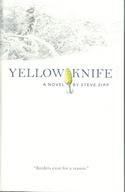For this book, my readers are getting three reviews: mine (an American's view), my husband's and a knowledgeable and wise friend's (both Canadian)--not necessarily in that order.____________________________________
 Knowledgeable & Wise Friend:
Knowledgeable & Wise Friend:The companies profiled are well known to Canadian consumers. Products, logos and signature lines, etched in our everyday lives. But this book adds little to our knowledge and understanding of the dramatic creation and development of these enterprises or the backgrounds of the risk-takers, visionaries and adventurers who dreamed the impossible dream in a country not known for taking chances. Instead we get button-down profiles right out of the annual reports and faint images and pale ghosts of the greatness of capitalism and free enterprise.
No energy, no excitement and few insights to celebrate these iconic companies - ironic.
iKonica/ironiKa
Muse:I wanted to read
Ikonica because it looked fun and educational for this American living in Canada. Part coffee table book, part Canadian marketing overview,
Ikonica was not as fun as I thought it would be. I learned some stuff--there are a few brands/companies I didn't know were Canadian (like Umbra, the company that designed the liquid soap dispenser I bought in NYC). Mostly, though,
Ikonica is a book that boils down to a pat-yourselves-on-the-back book for Canadian companies (which seems to have been the purpose of Hanna and Middleton). Readers, whether they are Canadian or not, will quickly tire of of "Canadians are so great" statements that appear at least three times a page.
I also disliked the comparisons between American marketing and Canadian marketing (though I don't know if it's avoidable); I detected definite anti-American sentiments from some of the contributers, and even when they weren't referring to the myopia of American consumers, the CEOs and presidents and VP's and founders all made a point of discussing how "modest" Canadians are.
Overall, the book lacked substance. No one discussed anything that had ever been done wrong or badly in their companies, with the exception of the marketing VP for Cirque du Soleil mentioning that they tanked in Niagara Falls because of ill planned marketing and branding.
Ikonica reaches the height of boring readers by the halfway point (sooner for the less tolerant) if you read it straight through, after which readers will have a hard time focusing and may just flip through the pages to look at the pictures.
Muse's beloved husband:Ikonica goes to great lengths to re-broadcast the corporate "message" as written by those pretending to be the messenger, the CEO's and Chairmen/women of the boards.
To read this book and believe the words contained, I would come away thinking that if it weren't for
George Stroumboulopoulos, I would have no cultural bellwether with which to guide myself.[Insert finger in mouth here to imitate gag] If it were not for
Roots, my understanding of the beaver would be lost forever. [Puff out cheeks here to imitate mouth filling from reflux and gag reaction] I do not watch
The Hour, by choice. I have never worn Roots clothing, by choice.
Where is mention of
Take Thirty and the ground breaking work of
Moses Znaimer? Where is the nod to the many industrial
innovations of Canada? Jeepers and golly gee there hasn't been a true-sounding Canadian tone since the death of
Peter Gzowski. (At least he admitted to being a bit of a fraud with his "creation" of the award-winning front cover of the burning tree burning the forest fire sign.)
Little is said in
Ikonica about the failures, and the struggle... the ashes and anvil where success is forged.
Ikonica comes in at last place in selections of books I would choose to offer as representative of Canadian anything.
Ikonica reminds me of early family portraits, stood for at the dawn of photography; Mother and Father, straight-faced and turned out in clothes more suited to a funeral parlour; children looking equally dour, standing poised and upright. It becomes known later that each person had a stiff set of metal fingers gripping them by the neck to ensure steady pose and lack of movement. That is
Ikonica.
High quality production in print and photography amount to little more than an advertisement from the writers of this book that they will produce for your company, a very slick press release, which you can write yourself.
I will stick to
Why I Hate Canadians by Will Ferguson as a gift to the interested.
__________________________
Thanks to Mini Book Expo: Business Edition &
Douglas & McIntyre for sending this book.
 This is one of those books that's hard to review because you want readers to experience the book--called an "act of narrative resurrection" by another reviewer--without knowing too much in advance.
This is one of those books that's hard to review because you want readers to experience the book--called an "act of narrative resurrection" by another reviewer--without knowing too much in advance.

































